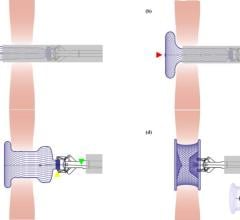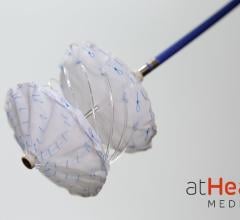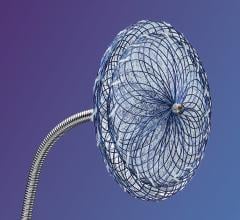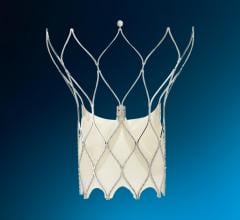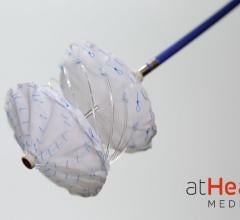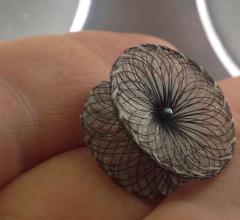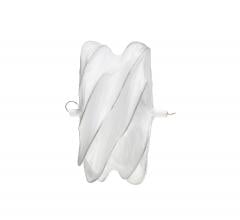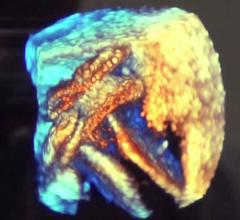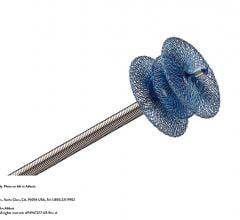
October 4, 2012 — Researchers at the University of Maryland School of Medicine, who are exploring novel ways to treat serious heart problems in children, have conducted the first direct comparison of the regenerative abilities of neonatal and adult-derived human cardiac stem cells. Among their findings: cardiac stem cells (CSCs) from newborns have a three-fold ability to restore heart function to nearly normal levels compared with adult CSCs. Further, in animal models of heart attack, hearts treated with neonatal stem cells pumped stronger than those given adult cells. The study is published in the Sept. 11, 2012, issue of Circulation.
"The surprising finding is that the cells from neonates are extremely regenerative and perform better than adult stem cells," says the study's senor author, Sunjay Kaushal, M.D., Ph.D., associate professor of surgery at the University of Maryland School of Medicine and director, pediatric cardiac surgery at the University of Maryland Medical Center. "We are extremely excited and hopeful that this new cell-based therapy can play an important role in the treatment of children with congenital heart disease, many of whom don't have other options."
Kaushal envisions cellular therapy as either a stand-alone therapy for children with heart failure or an adjunct to medical and surgical treatments. While surgery can provide structural relief for some patients with congenital heart disease and medicine can boost heart function up to two percent, he says cellular therapy may improve heart function even more dramatically. "We're looking at this type of therapy to improve heart function in children by 10, 12, or 15 percent. This will be a quantum leap in heart function improvement."
Heart failure in children, as in adults, has been on the rise in the past decade and the prognosis for patients hospitalized with heart failure remains poor. In contrast to adults, Kaushal says heart failure in children is typically the result of a constellation of problems: reduced cardiac blood flow; weakening and enlargement of the heart; and various congenital malformations. Recent research has shown that several types of cardiac stem cells can help the heart repair itself, essentially reversing the theory that a broken heart cannot be mended.
Stem cells are unspecialized cells that can become tissue- or organ-specific cells with a particular function. In a process called differentiation, cardiac stem cells may develop into rhythmically contracting muscle cells, smooth muscle cells or endothelial cells. Stem cells in the heart may also secrete growth factors conducive to forming heart muscle and keeping the muscle from dying.
To conduct the study, researchers obtained a small amount of heart tissue during normal cardiac surgery from 43 neonates and 13 adults. The cells were expanded in a growth medium yielding millions of cells. The researchers developed a consistent way to isolate and grow neonatal stem cells from as little as 20 milligrams of heart tissue. Adult and neonate stem cell activity was observed both in the laboratory and in animal models. In addition, the animal models were compared to controls that were not given the stem cells.
Kaushal says it is not clear why the neonatal stem cells performed so well. One explanation hinges on sheer numbers: there are many more stem cells in a baby's heart than in the adult heart. Another explanation: neonate-derived cells release more growth factors that trigger blood vessel development and/or preservation than adult cells.
"This research provides an important link in our quest to understand how stem cells function and how they can best be applied to cure disease and correct medical deficiencies," says E. Albert Reece, M.D., Ph.D., M.B.A., vice president for medical affairs, University of Maryland; the John Z. and Akiko K. Bowers Distinguished Professor; and dean, University of Maryland School of Medicine. "Sometimes simple science is the best science. In this case, a basic, comparative study has revealed in stark terms the powerful regenerative qualities of neonatal cardiac stem cells, heretofore unknown."
Insights gained through this research may provide new treatment options for a life-threatening congenital heart syndrome called hypoplastic left heart syndrome (HLHS). Kaushal and his team will soon begin the first clinical trial in the United States to determine whether the damage to hearts of babies with HLHS can be reversed with stem cell therapy. HLHS limits the heart's ability to pump blood from the left side of the heart to the body. Current treatment options include either a heart transplant or a series of reconstructive surgical procedures. Nevertheless, only 50 to 60 percent of children who have had those procedures survive to age five.
According to the American Heart Association, congenital heart disease may affect approximately one in 100 children. In the United States, more than 1 million adults are living with congenital heart defects.
For more information: www.umm.edu/news/releases/cardiac-stem-cells.htm

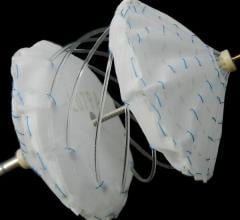
 June 20, 2024
June 20, 2024 
